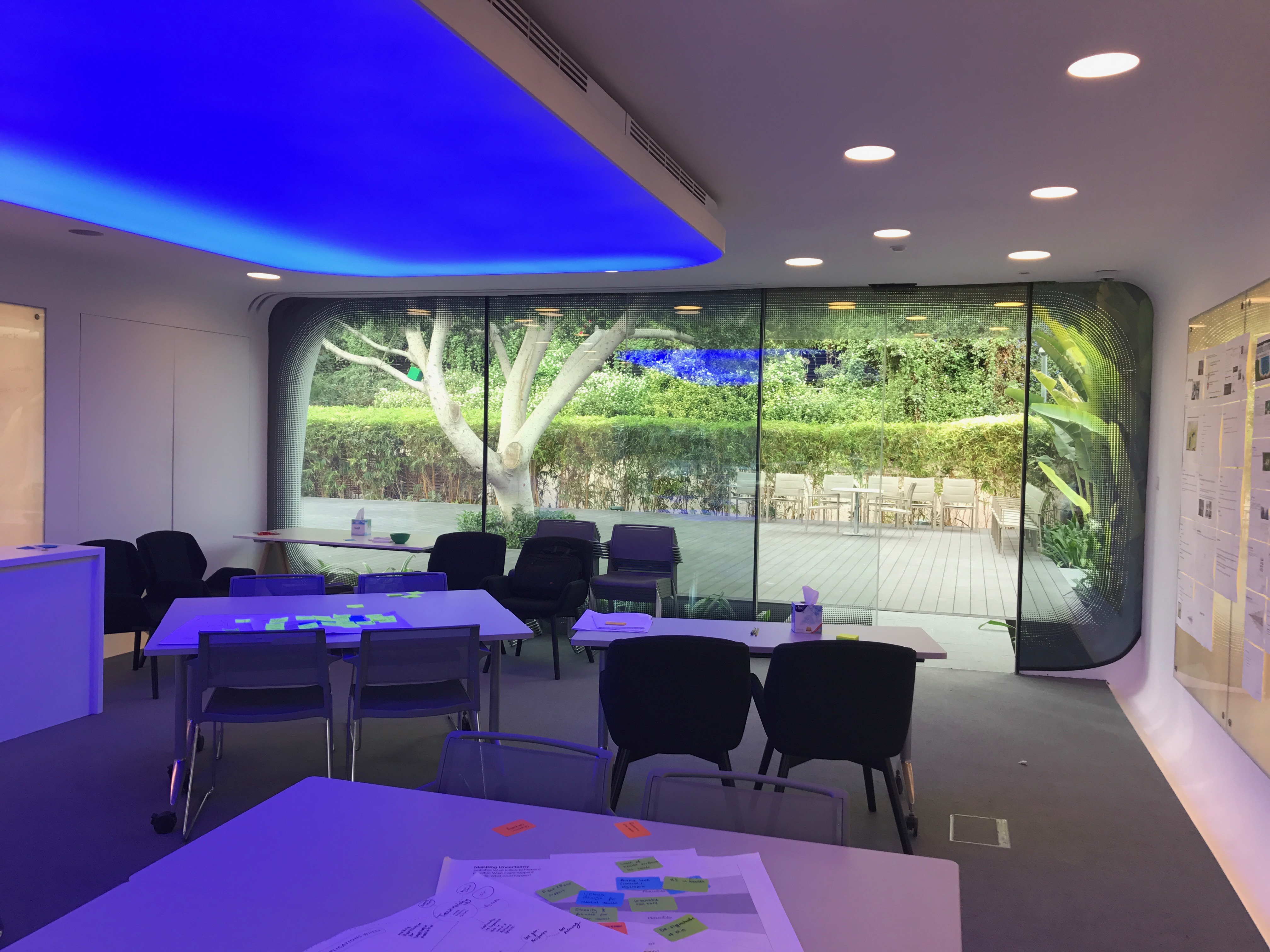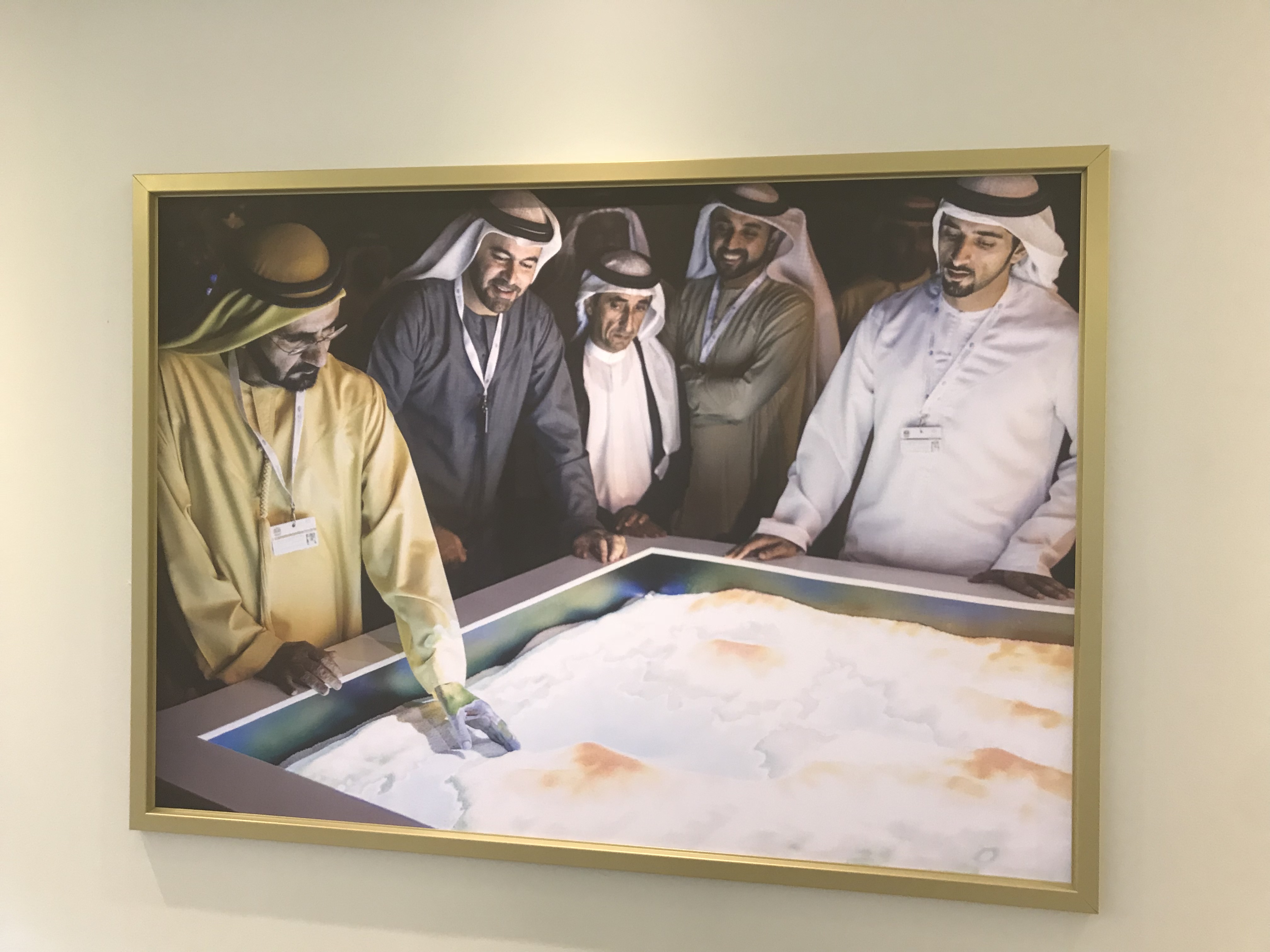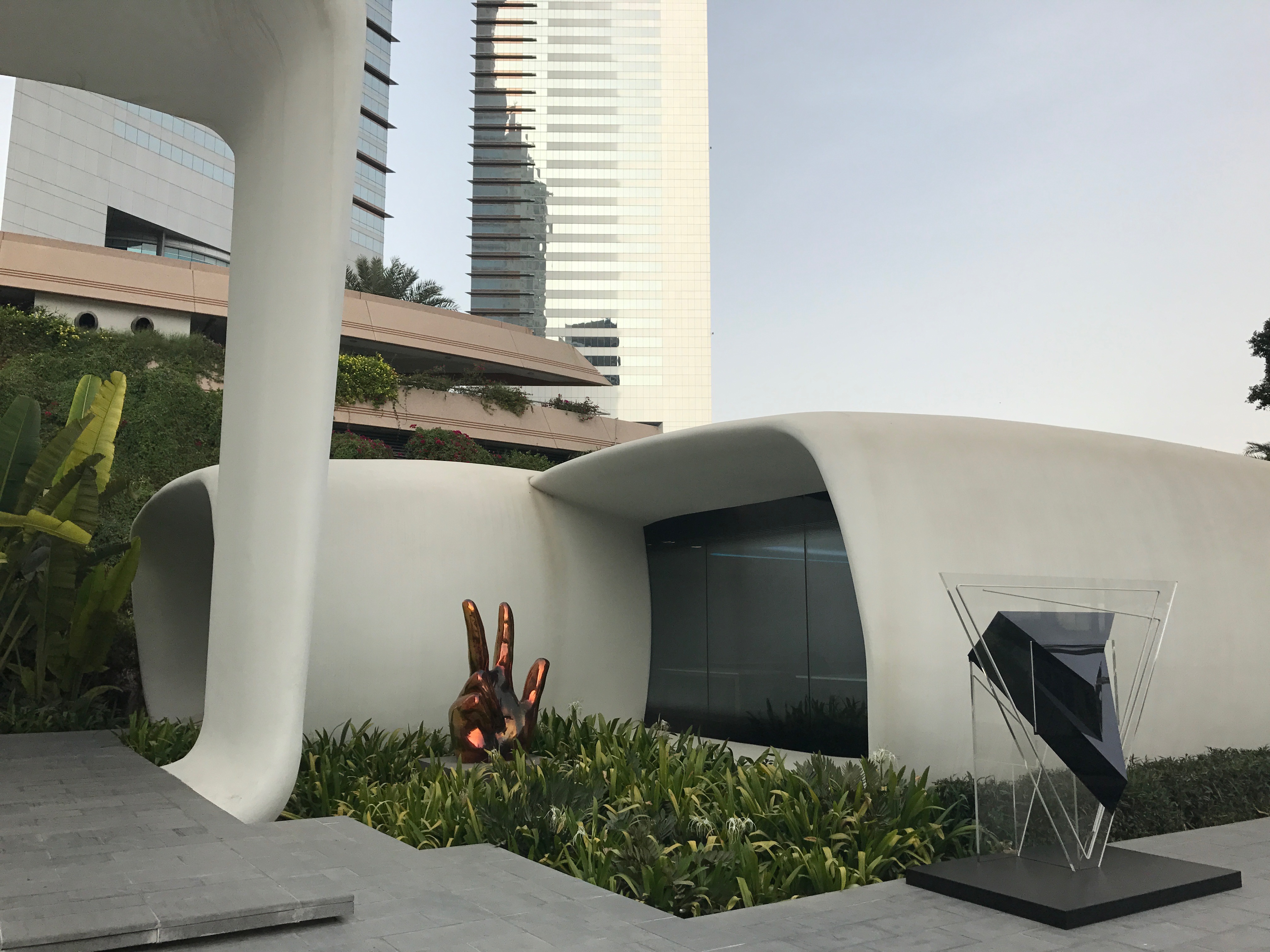3D Printed Office Dubai
| Line 14: | Line 14: | ||
Now complete, the building serves as the management office for the ‘Museum of the Future’ project and provides a headquarters for the Dubai Future Foundation, an organisation that will help to deliver smart technologies to the Emirates, including driverless cars and other cutting edge technologies. | Now complete, the building serves as the management office for the ‘Museum of the Future’ project and provides a headquarters for the Dubai Future Foundation, an organisation that will help to deliver smart technologies to the Emirates, including driverless cars and other cutting edge technologies. | ||
| + | |||
| + | [[File:3D office.jpg]] | ||
2 - Delivery | 2 - Delivery | ||
| − | A huge benefit of utilising 3D printing methodology was the speed at which the building was completed. After the design model had been completed, it took only seventeen days to print the entire structure and the speed of installation on site took two days. The speed of installation significantly reduced the number of personnel involved in the site installation phase. Specifically, the labour involved in the printing process included just one staff member to monitor the function of the printer and only seven operatives to install the building components on site. As a result, the labour cost was cut significantly compared to conventional buildings of similar size, which has clear advantages for the future of construction.[[File: | + | A huge benefit of utilising 3D printing methodology was the speed at which the building was completed. After the design model had been completed, it took only seventeen days to print the entire structure and the speed of installation on site took two days. The speed of installation significantly reduced the number of personnel involved in the site installation phase. Specifically, the labour involved in the printing process included just one staff member to monitor the function of the printer and only seven operatives to install the building components on site. As a result, the labour cost was cut significantly compared to conventional buildings of similar size, which has clear advantages for the future of construction.[[File:3D_office_interior.jpg|link=File:3D_office_interior.jpg]]3 - Results and Benefits |
The international significance of the delivery of this building cannot be underestimated. 3D printing of buildings can be likened to the early mobile phone technology of the 1980’s and 1990’s. The first mobile phone was the size of a small family car, heavy and impractical. If Motorola had not had a vision for how this technology would develop in the future, the smartphones of today would possibly not be in existence. | The international significance of the delivery of this building cannot be underestimated. 3D printing of buildings can be likened to the early mobile phone technology of the 1980’s and 1990’s. The first mobile phone was the size of a small family car, heavy and impractical. If Motorola had not had a vision for how this technology would develop in the future, the smartphones of today would possibly not be in existence. | ||
Revision as of 14:35, 23 December 2018
3D Printed Office of the Future, Dubai, United Arab Emirates
Client: The Prime Minister's Office of Dubai
Project Manager: PMK International Consult LLC
1 - Context
The construction industry in the UAE is a $44 billion industry that employs approximately 34% of the population and the Dubai Government is continually looking for ways to innovate and improve the efficiencies of the industry. By 2030, the Dubai Future Agenda, aims to have 25% of Dubai’s construction made by 3D printed technology. Globally, 3D printed technology is estimated to add $300 billion to the world economy by 2025.
The Office of the Future is the world’s first 3D printed office building. 3D printing is an innovative method that has been adapted for construction and was used here for the first time in a commercial project.
The project consists of approximately 350sqm of office space, printed layer by layer, using a 20-foot-tall 3D printer, located in, Shanghai, China. Each structural component was built using innovative 3D printing technology, combining a mixture of Special Reinforced Concrete (SRC) and recycled construction material.
Now complete, the building serves as the management office for the ‘Museum of the Future’ project and provides a headquarters for the Dubai Future Foundation, an organisation that will help to deliver smart technologies to the Emirates, including driverless cars and other cutting edge technologies.
2 - Delivery
A huge benefit of utilising 3D printing methodology was the speed at which the building was completed. After the design model had been completed, it took only seventeen days to print the entire structure and the speed of installation on site took two days. The speed of installation significantly reduced the number of personnel involved in the site installation phase. Specifically, the labour involved in the printing process included just one staff member to monitor the function of the printer and only seven operatives to install the building components on site. As a result, the labour cost was cut significantly compared to conventional buildings of similar size, which has clear advantages for the future of construction. 3 - Results and Benefits
3 - Results and Benefits
The international significance of the delivery of this building cannot be underestimated. 3D printing of buildings can be likened to the early mobile phone technology of the 1980’s and 1990’s. The first mobile phone was the size of a small family car, heavy and impractical. If Motorola had not had a vision for how this technology would develop in the future, the smartphones of today would possibly not be in existence.
From a practical perspective, an inspirational office building has been created. This is fundamental for the creative space in which the Dubai Future Foundation will collaborate and foster innovative ideas and concepts for design and application in the future.
The result of this project is a unique, futuristic and compact office building.
The interior of the building follows a minimalistic design that encourages collaborative working and creative thinking. Features include interactive idea walls, open plan communal areas with natural foliage, and large glass windows to allow natural light. In addition there are fully automated building management systems to regulate temperature, lighting, solar shading and audio-visual equipment.
4 - Conclusion
Fundamentally, the project has demonstrated that it is possible to design, create and build a 3D printed office building. This has generated valuable data and a realistic benchmark for time frames for future 3D printed building projects. The project represents one of the most relevant and exciting research and development construction projects anywhere in the world.
The 3D Printed Office of the Future won the ICPMA Full Award for IQ 2018. For more information email icpmamembers@gmail.com.
Featured articles and news
Infrastructure that connect the physical and digital domains.
Harnessing robotics and AI in challenging environments
The key to nuclear decommissioning and fusion engineering.
BSRIA announces Lisa Ashworth as new CEO
Tasked with furthering BSRIA’s impressive growth ambitions.
Public buildings get half a million energy efficiency boost
£557 million to switch to cleaner heating and save on energy.
CIOB launches pre-election manifesto
Outlining potential future policies for the next government.
Grenfell Tower Inquiry announcement
Phase 2 hearings come to a close and the final report due in September.
Progress from Parts L, F and O: A whitepaper, one year on.
A replicated study to understand the opinion of practitioners.
ECA announces new president 2024
Electrical engineer and business leader Stuart Smith.
A distinct type of countryside that should be celebrated.
Should Part O be extended to existing buildings?
EAC brands heatwave adaptation a missed opportunity.
Definition of Statutory in workplace and facilities management
Established by IWFM, BESA, CIBSE and BSRIA.
Tackling the transition from traditional heating systems
59% lack the necessary information and confidence to switch.
The general election and the construction industry
As PM, Rishi Sunak announces July 4 date for an election.
Eco apprenticeships continue help grow green workforce
A year after being recognised at the King's coronation.
Permitted development rights for agricultural buildings
The changes coming into effect as of May 21, 2024.























